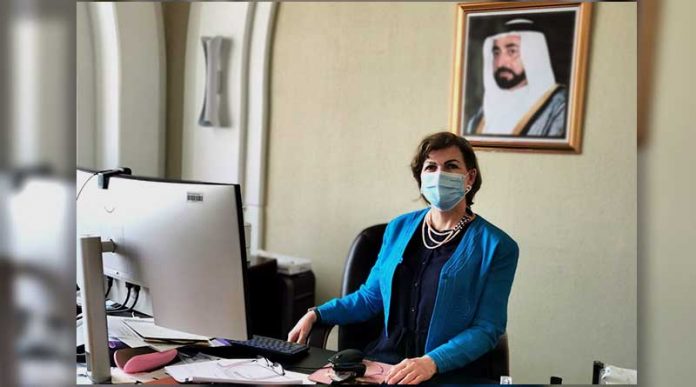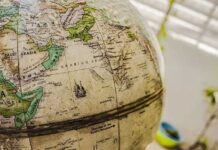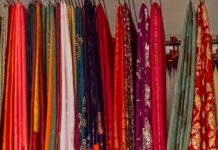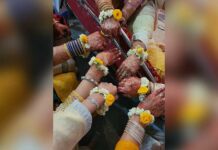AUS Chancellor takes us on a journey through time by sharing some of her fondest memories
By Sara Hameed
UNIVERSITY CITY, SHARJAH – Queenie was a beloved cat. When she died, Mother Superior wrote in her diary a long passage of how wonderful she was, and how deeply the sisterhood would miss her. Coincidentally, the very next day, the Queen of England passed away.
“That Queen got a sentence!” laughed the chancellor of the American University of Sharjah, Dr. Susan Mumm.
The conversation began with Dr. Mumm, who holds a doctorate in history from the University of Sussex, sheepishly confessing she found her calling as a historian by “accident.”
She joined university with the intention of majoring in psychology, until she needed an elective, and stumbled across a British social history course. From the beginning, she was fascinated by the history of women; although they were learning about women from 200 years earlier, there was such similarity in societal attitudes between then and now.
When asked of her expectations about becoming a historian, she lightheartedly replied, “Like all students, I hoped to get a job,” and believed she would end up teaching history in a high school somewhere.
Dr. Mumm hoped history would help her understand her own society better, and the “roots that it grew from.”
Liberal arts and the unreliable narrator
Insight into the human condition and broadening perspectives is what makes the liberal arts so important in the Chancellor’s eyes.
For instance, it was in her Freshman year that she learned about the concept of the unreliable narrator.
“The person narrating the story in the book…” Dr. Mumm paused while seated in the mesh office chair, “… may not be telling the reader the truth.”
She explained this idea as several people narrating the same event; yet each individual would give a different account of what happened. It is applicable in all parts of human life, such as in psychology; it is also used forensically in law and criminal justice.
“We certainly use it in history,” where the perspective of the general describing the battle would be extremely different from the soldier fighting in the ranks, unaware of the plan and only knowing that he needs to keep pushing on.
The revolutionary mind
“The world needs everybody’s talents; and it shouldn’t matter whether you’re born into a male body or a female body.”
“The world needs everybody’s talents; and it shouldn’t matter whether you’re born into a male body or a female body,” said Dr. Mumm.
This set the tone for Dr. Mumm’s doctorate thesis. It was about how women organized themselves into communities in the 19th century and lived apart from their families at a time it was not acceptable. People of that age believed women should always live in a home, first, their father’s and then their husband’s.
Instead, they set out to create communities where they could live on their own, create their own rules, and govern their own selves: “And to the 19th century mind, that was revolutionary,” she added.
Dr. Mumm is a feminist, and for her, this knowledge was exciting. She discovered how modern professions like social work and nursing emerged out of these communities. Women wanted to justify their collective life independent of the home, and they did so through “socially useful” work.
As a feminist, she wishes to see a world where women have the right to choose the kind of life they want to live, and for everyone to be able to use their talents, intellect, abilities and ambitions without constraint.
Time travelling from the West End
Being a historian is like being a detective, where little snippets of evidence are pieced together. If they are contradictory, they are weighed to see which claim is valid, and which claim might be “noise in the system.”
Dr. Mumm has spent “weeks, months and years” working in archives; yet it was during the time she was doing her doctorate that she found the most memorable.
Because she was covering women who lived in convents, she travelled across the United Kingdom over a period of three years to stay in more than 20 of these religious communities. These sisterhoods had not yet published their archives, so she had to live with them to personally study their records.
One such convent was the Society of the Sisters of the Church in the West End of London, which left a lasting impression on her.
Flipping through the founder’s diaries from the 1860s, 1870s and 1880s, made Dr. Mumm realize how she had such an original mind.
“She was a fearless person,” and did not mind being unconventional and taking risks. She learned from her mistakes, and from the words scrawled between each page, one could tell how her mind operated, her motivations and how she dealt with all the issues.
Dr. Mumm asked to imagine 300 to 400 women suddenly joining one’s organization, and being there not just “during office hours,” but 24 hours a day.
“Things will happen; tensions will arise; there’ll be some conflict,” but in the end, she still found it fascinating to see this “brilliant” mind invent a new kind of community.
“Reading the diaries was the most fun because it was almost like you could be transported back to the past.”
And now, kitties with passports
“I am a very silly lover of my cats,” the Chancellor chimed after listing her hobbies: thinking about history, gardening, reading, walking and hiking and teaching Pilates classes.
Dr. Mumm indeed has a Pilates qualification, and even used to spend her free time volunteering in nursing homes to teach it to senior citizens. When the coronavirus pandemic rolled around, it was no longer safe to enter nursing homes, and so she was forced to take a break.
Emphasizing how important Pilates is for strength, flexibility and balance, she hopes to volunteer soon, “Before I forget how to do it!”
As for her cats, they have travelled with her all over the world, “So, they’ve got passports, practically.”
Two were born in New Zealand, and crossed oceans to Canada, then finally, Sharjah.
Dr. Mumm tells the story of her black cat that lived in a cage for three months in New Zealand because people were not adopting her out of superstition.
“I just fell in love with her.”
Meanwhile, her other cat had been so neglected, the shelter thought she was blind. Demonstrating how her eyes were sealed from the infection, Dr. Mumm was grateful she was able to adopt her and pay for her vet bills.
After months of antibiotics and other treatments, she can see now, and is “quite an old lady.”
The world’s most important thing
Dr. Mumm reminisces of her parents who left school when they were 14.
At the time in rural Canada, going on to high school meant moving to the city and boarding, so students had to pay to live in someone’s house. Her parents’ family did not have the money to do so.
“All their lives, their abilities, their opportunities were restricted by the fact they came from poor families.”
She saw so many doors “slammed” in their faces because despite being intelligent, they did not have an education.
Dr. Mumm grew up with the thought of getting a degree, but then it occurred to her the most important thing in the world is to give people opportunities.
Her job, she concludes, “is to open all those doors of opportunity that people without an education can’t open…”
“It just shuts in their faces.”


















